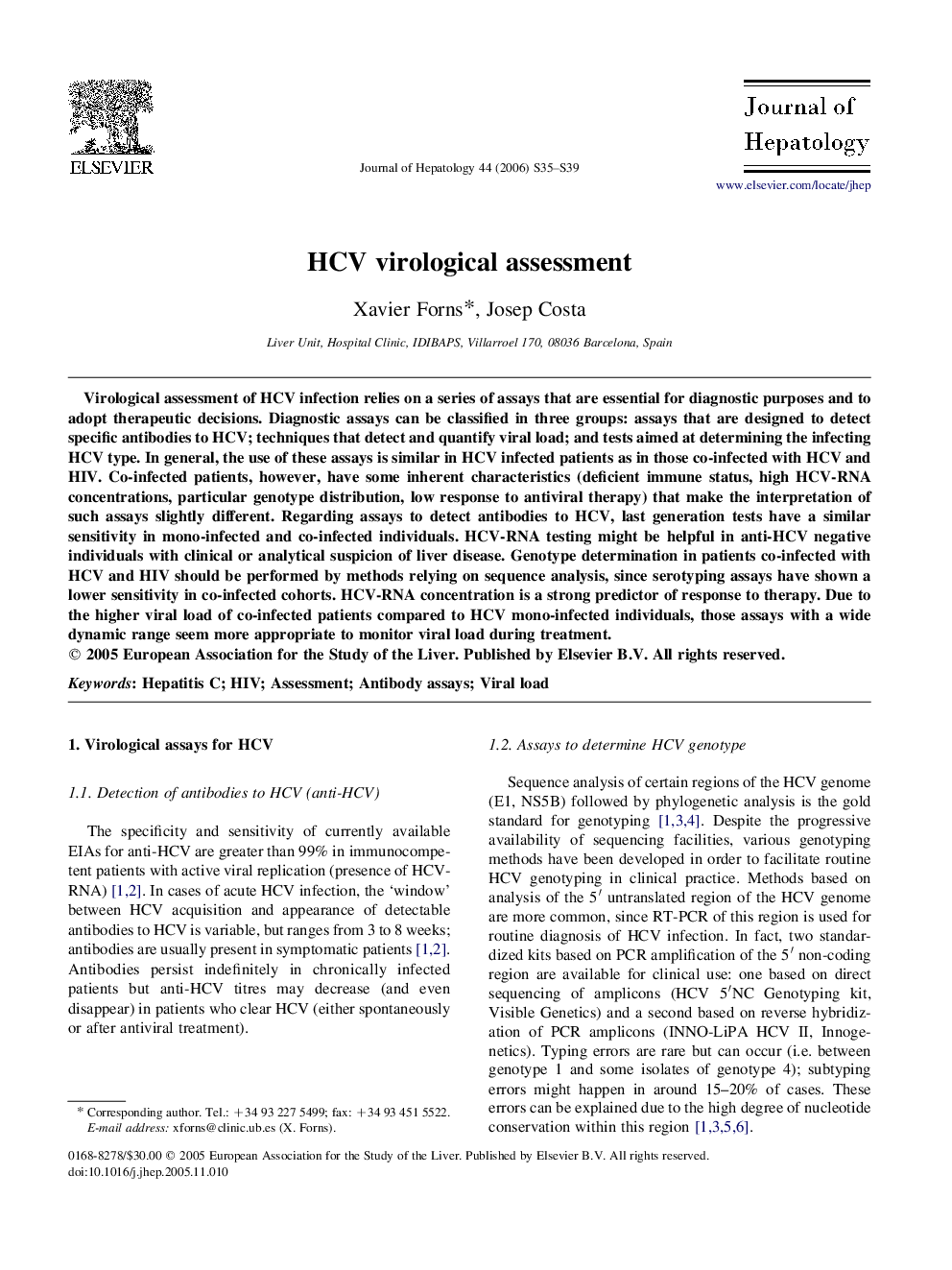| کد مقاله | کد نشریه | سال انتشار | مقاله انگلیسی | نسخه تمام متن |
|---|---|---|---|---|
| 3315411 | 1211256 | 2006 | 5 صفحه PDF | دانلود رایگان |

Virological assessment of HCV infection relies on a series of assays that are essential for diagnostic purposes and to adopt therapeutic decisions. Diagnostic assays can be classified in three groups: assays that are designed to detect specific antibodies to HCV; techniques that detect and quantify viral load; and tests aimed at determining the infecting HCV type. In general, the use of these assays is similar in HCV infected patients as in those co-infected with HCV and HIV. Co-infected patients, however, have some inherent characteristics (deficient immune status, high HCV-RNA concentrations, particular genotype distribution, low response to antiviral therapy) that make the interpretation of such assays slightly different. Regarding assays to detect antibodies to HCV, last generation tests have a similar sensitivity in mono-infected and co-infected individuals. HCV-RNA testing might be helpful in anti-HCV negative individuals with clinical or analytical suspicion of liver disease. Genotype determination in patients co-infected with HCV and HIV should be performed by methods relying on sequence analysis, since serotyping assays have shown a lower sensitivity in co-infected cohorts. HCV-RNA concentration is a strong predictor of response to therapy. Due to the higher viral load of co-infected patients compared to HCV mono-infected individuals, those assays with a wide dynamic range seem more appropriate to monitor viral load during treatment.
Journal: Journal of Hepatology - Volume 44, Supplement 1, 2006, Pages S35–S39